After investigators determined that one of the Navy’s senior-most recruiters likely violated military sexual assault laws when he touched a female chief’s breast in 2019, leadership declined to charge Master Chief Navy Counselor Franklin Tiongco and instead disciplined him for sexual harassment and assault, according to a Naval Criminal Investigative Service investigation obtained by Navy Times.
The incident began with a khaki blouse malfunction. While teaching a class for soon-to-be executive officers in April 2019, the chief paused instruction when she noticed a student staring at her chest.
The chief’s top had bunched up, leaving a gap between her chest-level buttons. The married mother of three stepped out of the classroom at Navy Recruiting Command headquarters in Millington, Tennessee, and explained the situation to Tiongco, who was the service’s national chief recruiter at the time and part of recruiting command’s leadership.
“Your dang button is open,” the chief recalled Tiongco saying.
Then, in the middle of a Navy hallway, Tiongco slid two fingers into the blouse gap and touched the chief’s breast beneath her bra, according to the chief and the NCIS investigation that followed.
“Whoa, yellow light behavior,” a master chief who witnessed the incident said, indicating that this was “more than an incidental touch,” according to a copy of the investigation obtained by Navy Times.
RELATED
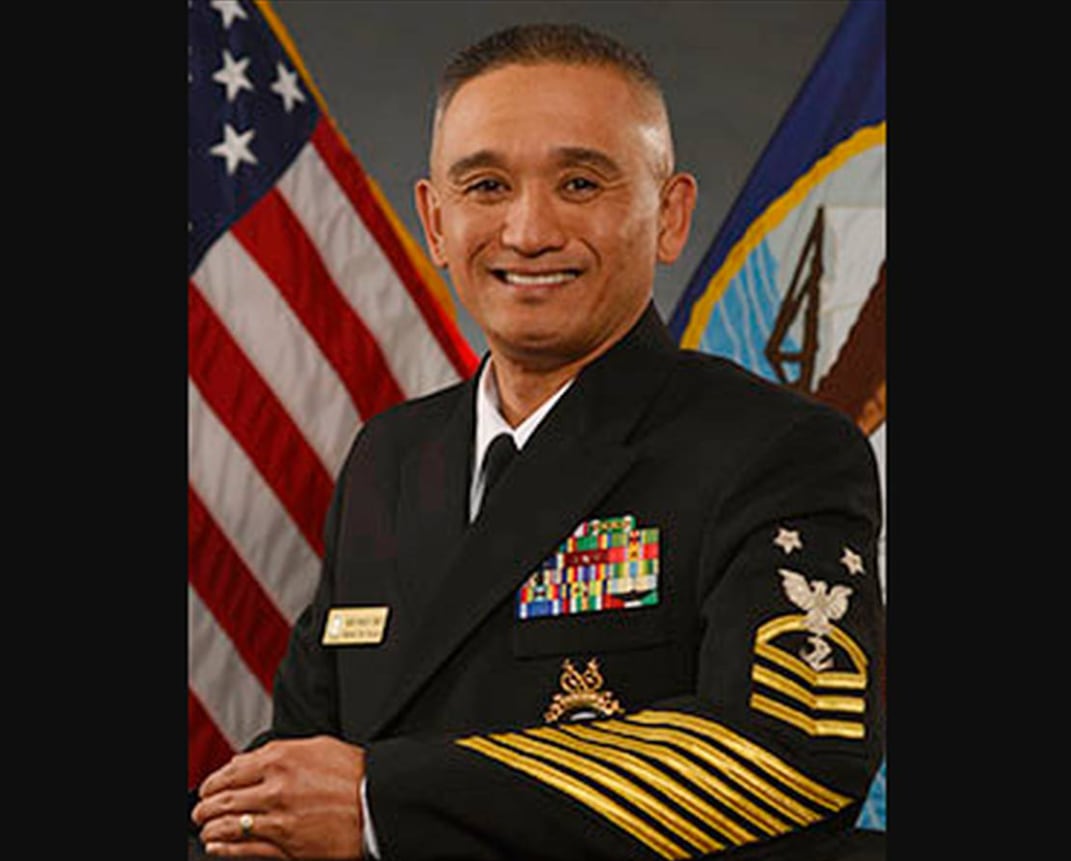
“Bro, don’t do that,” the chief recalled the master chief telling Tiongco, according to the investigation. “What are you doing?”
“After he said that, Tiongco laughed, and I walked away and he walked into the classroom to do his introduction,” the chief told Navy Times last week.
Tiongco did not respond to calls seeking comment for this report. The chief requested anonymity and Navy Times does not identify people who say they have been sexually assaulted.
The master chief who witnessed the incident later described it as “stupidly inappropriate but benign” to NCIS agents.
But the chief recalled it differently, and said that when Tiongco touched her, she froze.
“I felt my body tighten up,” the 39-year-old told Navy Times. “I immediately just felt like my heart stopped.”
The chief said she had been sexually assaulted earlier in her 21-year Navy career, and dread flooded back.
“Not again,” she thought. “What do I do?”
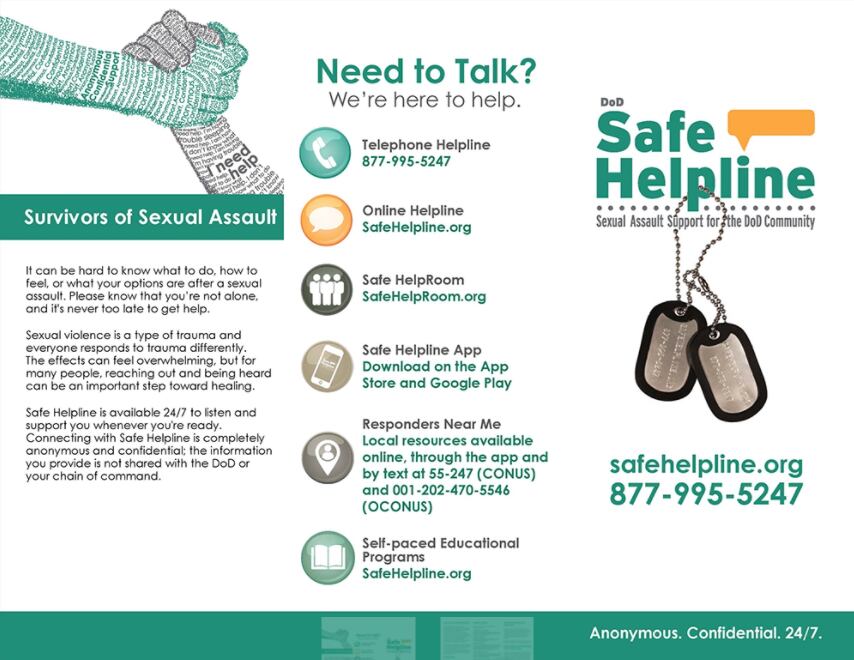
Like all other names in the released copy of the NCIS investigation, the name of the master chief who witnessed the event is redacted.
“I looked at my master chief, like a shock, help me,” the chief said. “I felt like I didn’t have control of my body, like an out-of-body experience.”
A year later, in April 2020, NCIS agents and Navy attorneys determined there was “sufficient probable cause” to believe that Tiongco violated Article 120 of the Uniform Code of Military Justice for abusive sexual contact, according to the NCIS investigation.
“Subject touched victim’s breast in the workplace,” according to a sexual assault disposition report included in the investigation. “Event was witnessed by a third person.”
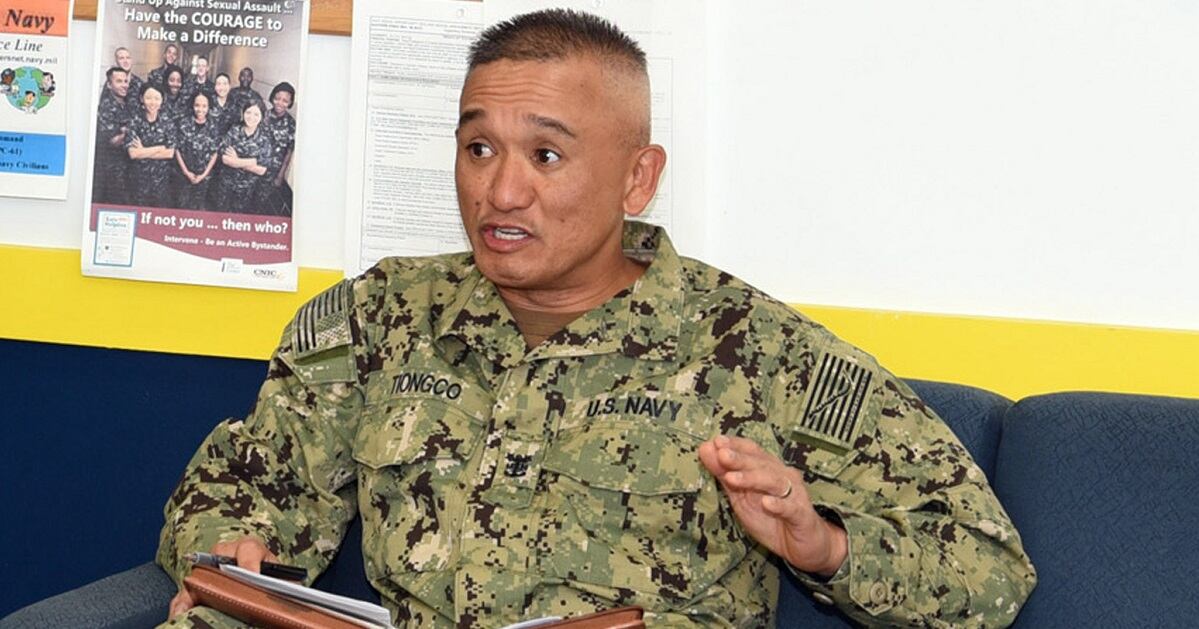
Tiongco was relieved as national chief recruiter in May 2020, but NRC’s commanding officer, Rear Adm. Dennis Velez , declined to charge him with a crime.
Velez instead gave Tiongco nonjudicial punishment “for sexual harassment and assault on a petty officer,” and the master chief received a letter of reprimand, the investigation states.
The chief said she was only notified that Tiongco was being administratively disciplined and not court-martialed a day before his hearing.
Following Tiongco’s NJP in June 2020, the NCIS investigation shows he submitted a request to waive any administrative separation board process and be allowed to retire, a request that Velez approved in August 2020.
Now, 18 months after those events in Building 750 aboard Naval Support Activity Mid-South, Tiongco is getting ready to leave the Navy this week following 30 years in uniform, officials said.
A defense official who requested anonymity because they weren’t authorized to speak on personnel matters said Tiongco was reduced in rank to E-8 and will retire at that pay grade.
The chief said she was left traumatized by the incident and debated for months whether she should report what happened.
Military sexual assault prevention is a theme pushed by the Pentagon and service brass in speeches, social media posts and mandated training sessions. But to critics of the military’s handling of sexual assault, the NCIS investigation’s findings and subsequent lack of charges suggest a contrast to leadership messages preaching accountability.
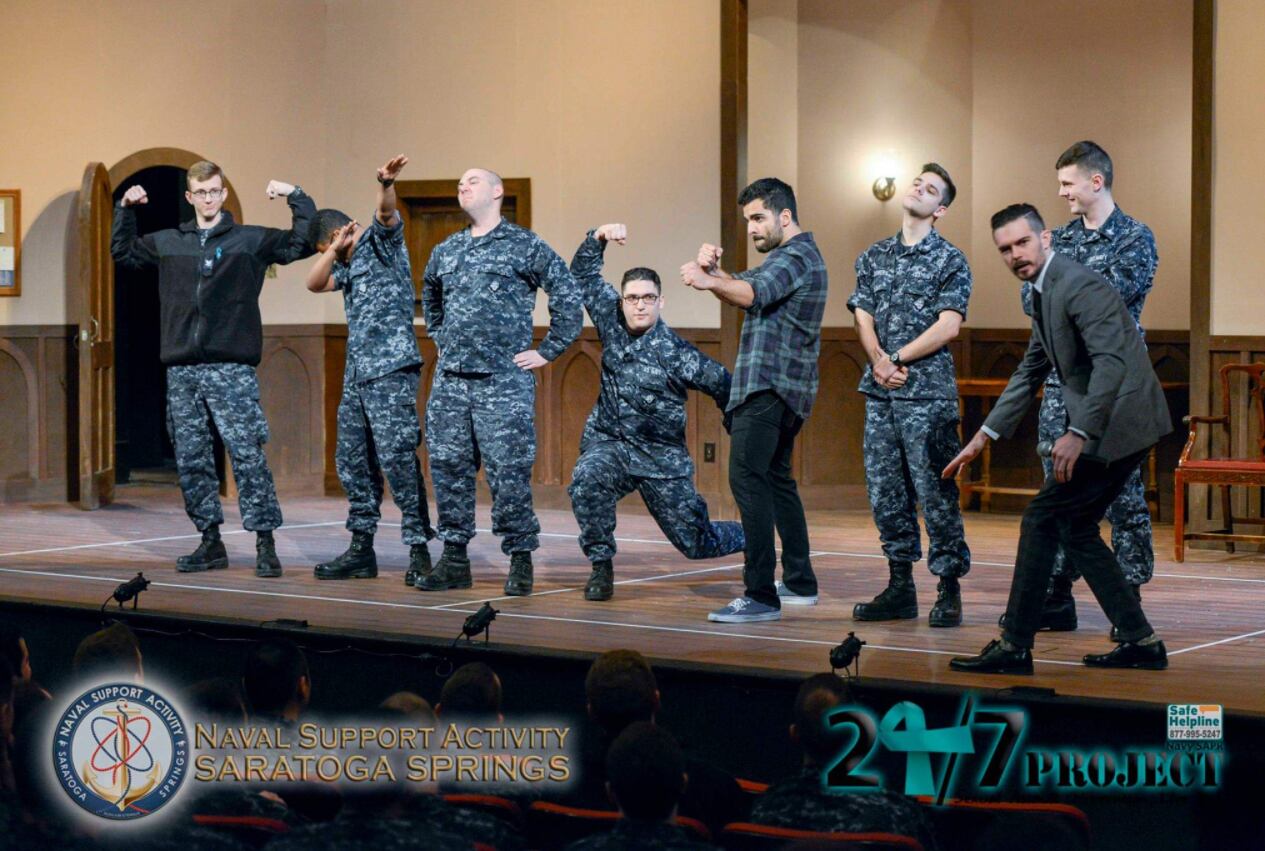
The investigation’s revelations also come as Congress considers whether to remove the military chain-of-command from deciding whether to charge serious crimes. The fiscal 2022 defense funding bill that Congress now debating includes a provision that would enact such a sea change to military law.
Critics also contend the event gives weight to a long-held theory that higher-ranking officials aren’t punished as harshly as their junior brethren, a phenomenon otherwise known as “different spanks for different ranks.”
RELATED
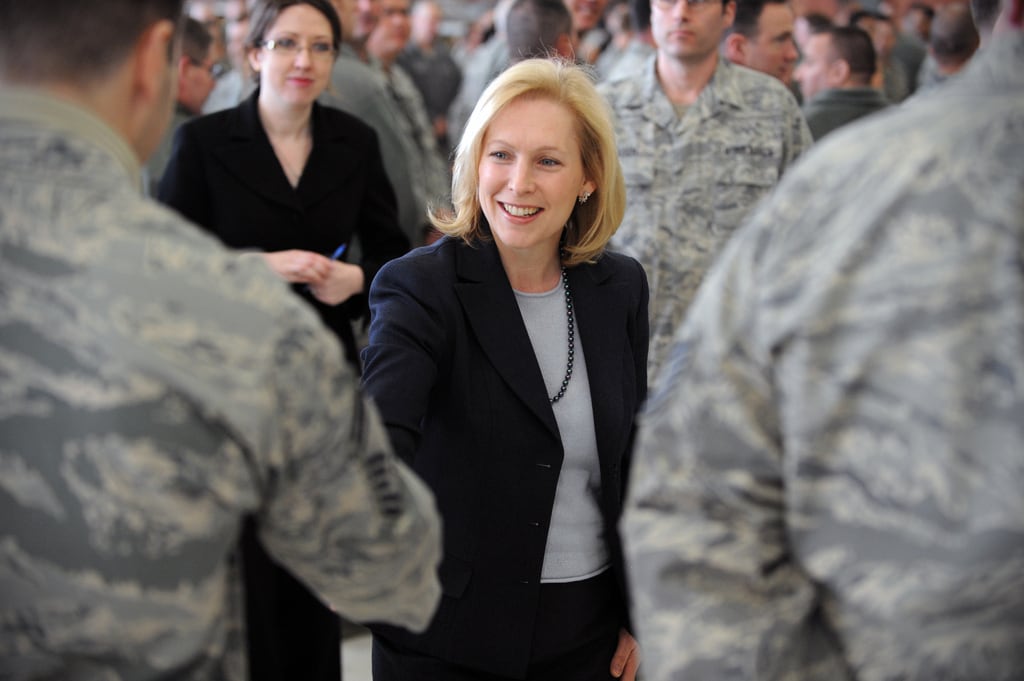
Not charging such a case is “an absolute knife in the back to good order and discipline,” said Don Christensen, a retired Air Force colonel and one-time chief prosecutor for the service who now leads Protect Our Defenders, a nonprofit that advocates for change in how the military handles sexual assault.
“The more senior you are, the higher standards you are held to,” Christensen told Navy Times after reviewing the NCIS investigation. “If you have a crisis of sexual assault and sexual harassment in your institution, and you have someone of a senior rank committing sexual harassment and assault and you have the evidence to prove that … that’s a pretty easy call.”
“It fuels the belief that is too often a reality, that there are different punishments for junior enlisted,” he said.
Such cases bolster the argument that military commanders should be taken out of the decision-making process for serious crimes, Christensen said.
“You said he assaulted a subordinate and gave him a reprimand?” he said. “Come on.”
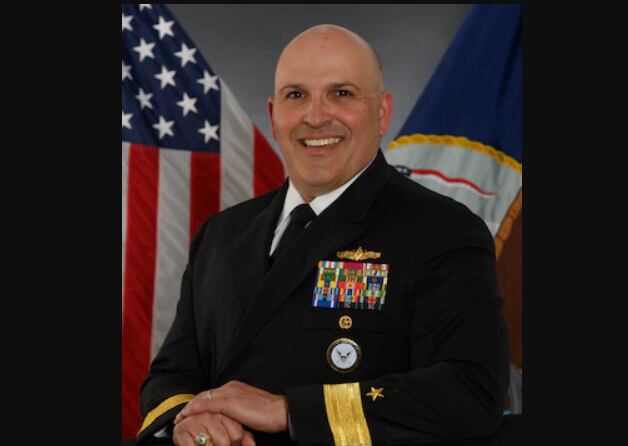
Navy officials declined to discuss the specifics of Tiongco’s punishment but defended Velez’s decision.
“Rear Adm. Velez, after consulting with the trial experts at Regional Legal Service Office Southeast, elected to impose certain and swift non-judicial punishment against NCCM Tiongco at Admiral’s Mast,” NRC spokeswoman Cmdr. Lara Bollinger said in an email. “Navy Recruiting Command takes all allegations of sexual assault and harassment very seriously and remains committed to the Navy’s mission to prevent and eliminate sexual harassment and assault from its ranks.”
Well before leadership declined to charge Tiongco, the NCIS investigation suggests several senior enlisted leaders failed to help the chief.
In the hallway where Tiongco touched her, the master chief witness never reported the incident.
Right after, the chief said she went to get a jacket and told her senior chief what happened.
Christensen said the senior chief had a legal obligation to route such an unrestricted sexual assault report, but he also did nothing.
When approached by NCIS agents in early 2020, Tiongco invoked his right to remain silent.
Agents “apprehended” the national chief recruiter on April 14, 2020, and took his mugshot, fingerprints and a DNA sample for inclusion in FBI databases, according to the investigation.
That same day, the NCIS investigation states that agents and NRC’s legal staff “consulted and coordinated” on the evidence.
“The determination was made that there was sufficient probable cause to believe that (Tiongco) committed a violation of Uniform Code of Military Justice (UCMJ) Article 120d (Abusive Sexual Contact),” the NCIS report states.
A command assessment “recommended no prosecution of abusive sexual contact due to insufficient evidence of intent,” according to the investigation.
But intent is often murky in sex crime cases, Christensen said.
“Rarely does somebody say, ‘I’m grabbing your breast for sexual gratification,’” Christensen said. “You’re looking at circumstances. Does the guy have a legitimate reason to be touching her breast? I don’t see any.”
The NCIS investigation recounts the chief telling coworkers she felt that no one would believe her, and some interviewed for the probe indicated that Tiongco was not a leader to be crossed.
“Tiongco creates a toxic environment within the command, holds grudges, and regularly uses his position of power to reward his friends and punish people he perceives as enemies,” one person told NCIS agents.

‘What we have to deal with’
The chief contacted Navy Times after a story last week involving an internal NRC investigation into Tiongco that involved inappropriate sexual comments he and others made to another female chief during a house party in 2019.
That probe found “sufficient evidence” that Tiongco sexually harassed the woman.
NCIS agents interviewed sources regarding that same “command function” house party, where Tiongco is accused of joining others in mocking another female chief regarding a sexual act and chanting about it.
The woman, who was at the party with her kids and boyfriend, “stated she felt trapped by the individuals chanting and was humiliated,” and believed that her subsequent evaluations suffered due to the incident, the investigation states.
As the months have passed, the chief said she has been waiting for NCIS to provide her a copy of the investigation. Navy Times provided her a copy of the investigation last week.
While debating whether to report what happened, the chief said the trauma took its toll. She kept it from everyone, even her husband, and didn’t report the incident until early 2020, following a “mental breakdown” after she was moved to a desk right outside Tiongco’s office.
“My scalp would blister,” the chief said. “I couldn’t sleep. I found myself having nightmares and I would replay the scenario over and over.”
“I found myself being distant with my daughters and my family,” she continued. “I would sit in my home office and just cry. I had a lot of regret … my chest was tightening. I gained weight. I felt like I couldn’t breathe, like someone was just sitting on my chest.”
When she headed into work, “I would just have this stuff in my stomach,” the chief said. “Pain and disgust.”
Despite the reopened wounds that come with reading the NCIS investigation and discussing the incident, the chief said she hopes that sharing her experience will help other sex assault and harassment survivors come forward.
“I just want people to understand that it’s not just only about the predator, however you would call them,” she said. “It’s more about the victim and what we have to deal with afterwards, and what our families have to deal with.”
Geoff is the managing editor of Military Times, but he still loves writing stories. He covered Iraq and Afghanistan extensively and was a reporter at the Chicago Tribune. He welcomes any and all kinds of tips at geoffz@militarytimes.com.




